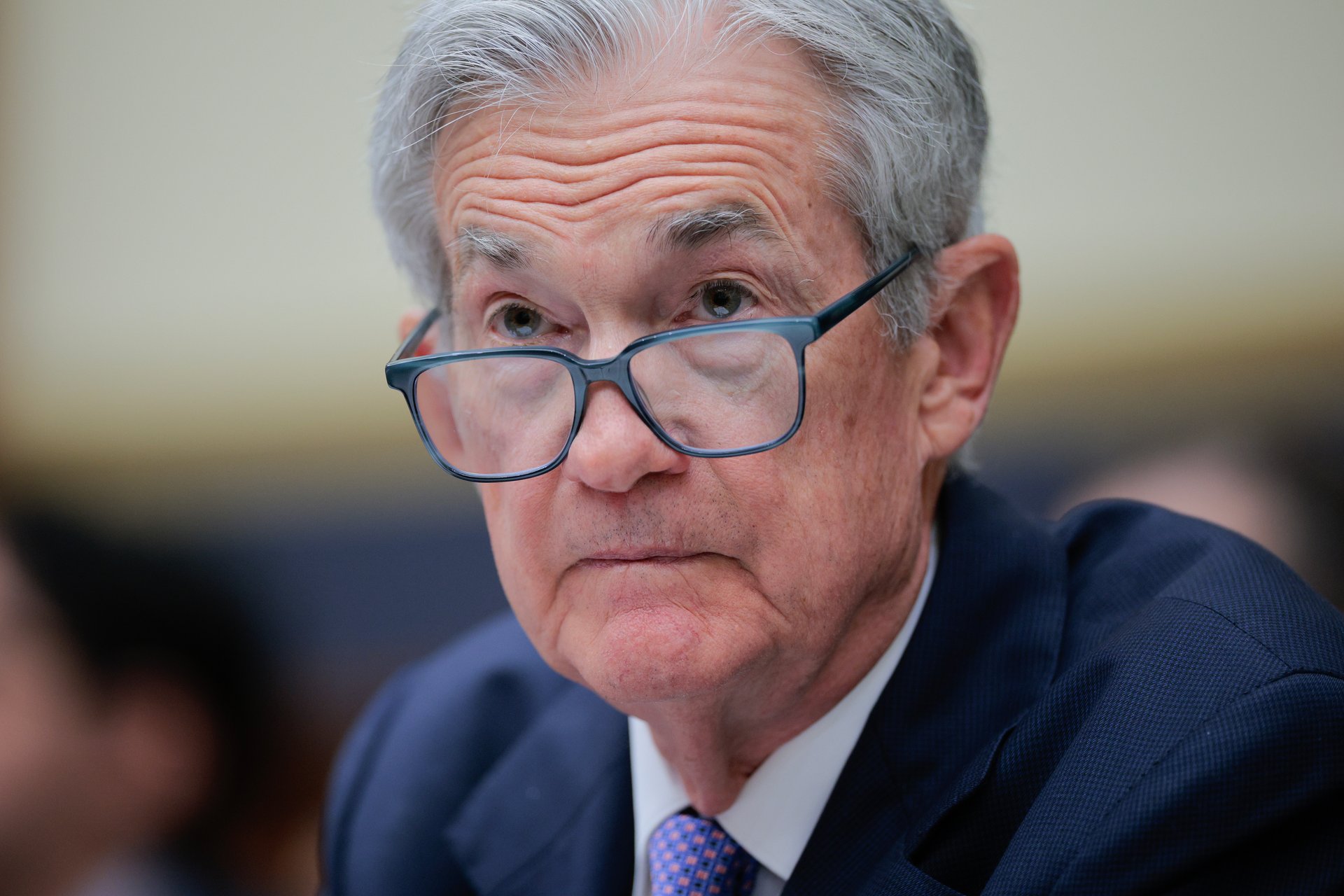Fed Chair Jerome Powell says Trump's tariffs are delaying interest rate cuts
Little from the central bank chief's testimony on Capitol Hill suggested that he would give a thumbs-up to lowering borrowing costs next month

Chip Somodevilla/Getty Images
Federal Reserve Chair Jerome Powell told lawmakers Tuesday that the central bank can sit tight and measure the impact of President Donald Trump's tariffs on the economy before reducing interest rates. Little from his testimony or answers to lawmakers' questions suggested that he would give a thumbs-up to lowering borrowing costs next month, as central bank officials remain divided on the speed of rate cuts this year.
Suggested Reading
In testimony to the House Financial Services Committee that stretched for a little over three hours, Powell reaffirmed his belief that the American economy is still on strong footing. The Fed chief pointed to a 4.2% unemployment rate and job gains averaging 124,000 per month in the first five months of the year. Wage growth continues outpacing inflation, and Powell argued the labor market has reached maximum employment.
Related Content
"For the time being, we are well positioned to wait to learn more about the likely course of the economy before considering any adjustments to our policy stance," Powell said.
At one point, he suggested that Trump's tariffs tied the Fed's hands and kept it from cutting rates further this year. "At this time all forecasters are expecting pretty soon that some significant inflation will show up from tariffs. And we can't just ignore that," Powell said.
He also said he disagreed with JPMorgan Chase CEO Jamie Dimon about his warning of a coming "crack" in bond markets. "I don't think that's something that's happening. Treasury markets are functioning well," Powell said.
Powell will speak to lawmakers on the Senate Banking Committee on Wednesday.
The tariffs' effect on inflation has been muted so far. Many economists, though, expect companies to offload price increases on consumers after drawing down their current product stockpiles.
Powell kept the door open to either possibility. "The effects on inflation could be short lived—reflecting a one-time shift in the price level. It is also possible that the inflationary effects could instead be more persistent," he said.
His scheduled periodic testimony comes as Trump keeps up a barrage of personal attacks on Powell for not endorsing lower interest rates. Those are usually tied to looser economic conditions that encourage more borrowing and therefore more consumer activity.
The president has employed a scorched-earth approach against Powell and argued that the benchmark interest rate should be up to three percentage points lower. The current interest rate is set between 4.25% to 4.5%.
The White House reiterated Trump's criticism of Powell after his appearance on Tuesday. A spokesperson pointed to four "expectation-beating" inflation reports in a row.
“The Federal Reserve’s job is to ignore politics and rely on what the data actually show to set monetary policy," White House spokesman Kush Desai said in a statement. "The Administration’s supply-side reforms have clearly delivered on President Trump’s pledge to end inflation, and it’s now time for monetary policy to complement the Administration’s pro-growth policies.”
Several central banks have slashed interest rates to fortify their economies against Trump's tariffs, while the Fed has sat tight since December. Fed officials held four meetings in a row without lowering interest rates.
"Europe has had 10 cuts, we have had ZERO. No inflation, great economy - We should be at least two to three points lower," Trump said Tuesday on social media. "I hope Congress really works this very dumb, hardheaded person, over. We will be paying for his incompetence for many years to come."
In recent weeks, Federal Reserve Governors Michelle Bowman and Christopher Waller have suggested they'd back a July interest rate cut if prices continue holding steady. Other top Fed officials aren't as convinced and sided with Powell.
"I would see the last quarter.. is sort of when I would expect we would know enough to move," Atlanta Federal Reserve President Raphael Bostic told Reuters in an interview published Tuesday.
